MDGA Genetics
UC Davis Genetic Testing
How the Davis testing works
Getting started with your MDGA testing is a breeze. Just send us your testing request, and our committee will handle the rest. We’ll arrange for your kit(s) directly from UC Davis and promptly send it your way via email. Once you receive it, simply follow the easy-to-understand instructions included in the kit. It’s that straightforward!
You can test ANY goat you own, Standards, Nigerians, Minis, MDGA registered or not MDGA registered.
Parentage Testing Procedures – DNA – $38
A DNA profile—which provides allele sizes for all microsatellite markers—is obtained, and parentage analysis is performed. A variety of sample types can be utilized for routine testing, including blood, hair, semen, buccal swabs and FTA cards. Non-routine sample types include bone, teeth, saliva, dried blood, urine and feces. DNA is extracted from the samples, and microsatellite marker analysis begins with the PCR procedure. In this process a computer program compares the DNA profile of the offspring to those of the presumed parents. A parentage analyst reviews the results and sends the final report. If a listed parent or parents are excluded, additional analysis is performed including retesting of samples and the possible use of additional DNA markers to confirm the exclusion.
*If there is any question about a kid(s) sire, i.e. more than one buck in a doe pen, All kids will be required to have a DNA test completed as well as at least one of the bucks (if there are only 2 bucks in question) will need to be tested in order to register the kid(s).
Alpha S1 Casein Testing – $27
Alpha s1 Casein is one of the four casein proteins found in goat’s milk and is the most important of the four for cheese making. The Alpha s1 Casein gene (CSN1S1) that produces the protein shows polymorphisms which affect the amount of protein and fat produced, with higher levels associated with the best cheese making. Research suggests that low levels of Alpha s1 Casein, may be associated with reduced milk sensitivities for some people.
G6-Sulfatase Deficiency(G6S, MPSIIID) – $27
G6-Sulfatase deficiency is an inherited metabolic defect that occurs in Nubian goats and related crosses. A mutation in the G6-S gene renders the enzyme incapable of degrading complex polysaccharides known as heparin-sulfate glycosaminoglycans (HS-GAGs) which then abnormally accumulate in tissues such as central nervous system and viscera. Clinically, affected goats exhibit delayed motor development, growth retardation, and early death. The disease is inherited in an autosomal recessive fashion. Therefore, both sexes are equally affected and two copies of the defective gene must be present for signs of the disorder to be observed. Breeding two carrier goats, which are normal but each possesses a single copy of the mutation, is predicted to produce 25% affected offspring.
Goat Scrapie Susceptibility – S146 & K222 $27
The VGL offers a DNA test for classical scrapie in goats to screen for presence/absence of the resistance alleles S146 and K222. Information from the test can be used by breeders to select breeding stock to increase frequency of beneficial alleles in their herds. Breeding for resistance is an effective means to control classical scrapie in goats at the herd and population levels. This test is applicable to goats of all types and breeds, including those raised in the U.S.
Send all questions to:
davistesting@minidairygoats.org
Please be aware that all new and updated registration certificates will include the following disclaimer:
The herein described animal has been accepted in the Miniature Dairy Goat Association under the Bylaws and policies of the Association. This certificate is issued in reliance on the truth of the statements submitted on the application for registry or transfer, but is in no event deemed a guarantee by the Association of the breeding or ownership of the animal. If an animal has been admitted to entry or transferred through error, misrepresentation, or fraud, such entries or transfers are void, together with any entries and transfers that have been made of progeny of any such animals, and the Association assumes no liability for damages, arising from any such entry or transfers.
MDGA will record Davis Test Results on the TESTED ANIMAL’S registration certificate if requested. Updated certificates can be purchased for $4.00 on the PayPal page (please email your breed’s registrar to let them know any updates or changes desired).
Proper Storage of Hair Samples:
Once collected, here’s how to keep your samples in perfect condition:
- Secure Packaging: Place the hair, with roots intact, in a paper envelope. Use a separate envelope for each goat to avoid mix-ups.
- Room Temperature Storage: Keep the envelopes at room temperature in a dry place. This method preserves the samples effectively, keeping them suitable for testing for up to a decade.
- Avoid Plastic and Extreme Temperatures: Never store hair samples in plastic bags. Also, there’s no need to refrigerate or freeze them, as these conditions can compromise the sample quality.
Following these steps ensures your samples remain viable and ready for testing, helping you get the most accurate insights into your herd’s genetics.
Guidelines for Hair Sample Collection:
DO NOT CUT, Pull and Visually check that roots are attached to hair. DO NOT TOUCH ROOT BULBS. To ensure accurate results from your genetic testing, it’s important to collect the right type of hair sample. Aim for 20-30 strands of coarse, longer hair, ideally from these areas:
- Withers
- Chest
- Rump
- Tail
- Back of the hind leg
- Poll
- Fetlock
These areas typically provide the best quality samples for testing in goats.
Become Part of Our Community
Elevate Your Breeding Expertise with MDGA: Connect with a vibrant community of breeders, access specialized resources, and participate in exclusive events. Join MDGA and transform your passion into success.
